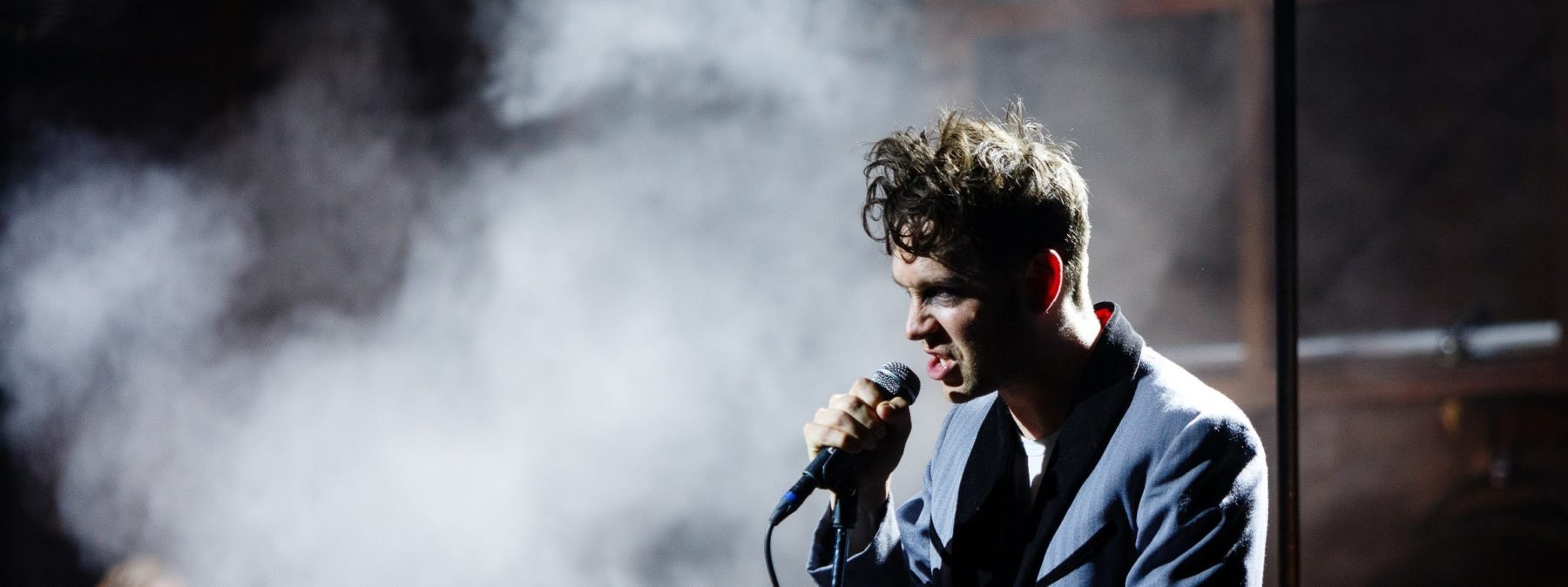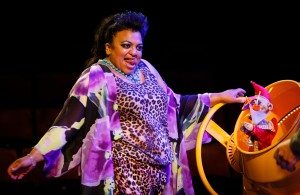Review: Kneehigh returns with ‘uncontested theatrical ability to tell a story’
Having seen the equally brilliant Red Shoes and Wild Bride, I was expecting to see Kneehigh deliver this piece with that signature characteristic charm they carry so well and I was not disappointed. Dead Dog in a Suitcase (and other love songs) is an adaption of A Beggar’s Opera, catapulting this 1728 tale into the here and now.
The set is an impressive and playful one, almost ghosting an industrial children’s playground with a slide and a pole that stands below a noose, hanging centre stage. The actors used the interchangeable elements and levels of the space intelligently, and held the audiences engagement in a fast moving plotline.
The story begins with the mysterious shooting of Goodman and his dog, a man soon to be re-elected as mayor, directly after he reveals he knows ‘the truth, and must reveal it tonight’. They are shot by Macheath, played by Dominic Marsh, who then becomes the protagonist of the piece as we follow him on his immoral journey through life, a man who is adamant that he is not afraid to die. This was the set up for a farcical, comedic yet romantic murder mystery which somehow amongst the madness made relevant statements about the morality of current society alongside topical jokes and contemporary stereotypes.
We question how power and money are intertwined and the effects of rising against corruption.
Kneehigh hold an uncontested theatrical musical ability to tell a story. They highlighted the capability of music to change mood and setting within an instant. The show was creative in every avenue, using elements of punk and rap as well as more musical theatre style moments. Puppets brought a further dimension again, with babies, animals and Punch and Judy characters all in puppet form. Punch represented the consciousness of characters, or voice of the devil, that pops up narrating the thoughts behind the action. This diversity in mediums that director Mike Shepherd brings to this adaptation is what revolutionises an old tale.
The production is sectioned with some areas standing out more than others. Highlights include the lovely and hilarious, if somewhat initially stereotypical, relationship between Les and his wife Mrs Peachum, the perfect comic villains. The choreography was imaginative and varied. Polly Peachum’s wedding scene felt like a strange dream, with a brilliant saxophonist and twisted musical theatre elements. It was abstract and engaging, hanging in a limbo of musical and theatrical genres.
Delivery of dialogue is sometimes robotic but works in this world of fast abstract storytelling where nothing is quite as it seems in a distorted reality. Statements are made about wider society through the mockery of the judiciary system as puppets and the policing system though a ridiculed, slapstick character. A scene where Les Peachum recalls ghosts is initially comic, despite its honing in the theme of death and the post-traumatic stress Les is experiencing. Filch, played by Andrew Durand, has the most spectacular tone to his voice. He transforms something as simple as an injury or searching for a lost Polly into a beautifully effortless musical moment.
There is the ongoing question of: what the hell is the world coming to? Goodman’s wife is the voice of wider issues and the bearer of attempting answers. In a prison cell she says to Macheath, ‘Don’t blame the world, we make the world.’ There is something appropriate about the way she attempts to reason more than any other character, yet all she is left with is a dead dog in a suitcase. Before the very end we are left hearing the hopeless breaths of Goodman’s wife. Perhaps this would have in fact been the perfect ending.
This show is brilliantly current in character, style and language. It is intermittently comic in an otherwise topically quite distressing piece. We question how power and money are intertwined and the effects of rising against corruption. Love becomes part of the basis of this story, which is interesting given its violence and topical nature. There were interludes of clues throughout to the somewhat inevitable ending but were buried by the characteristic charm of Kneehigh, the most magical, topical theatre company out there right now.


Comments